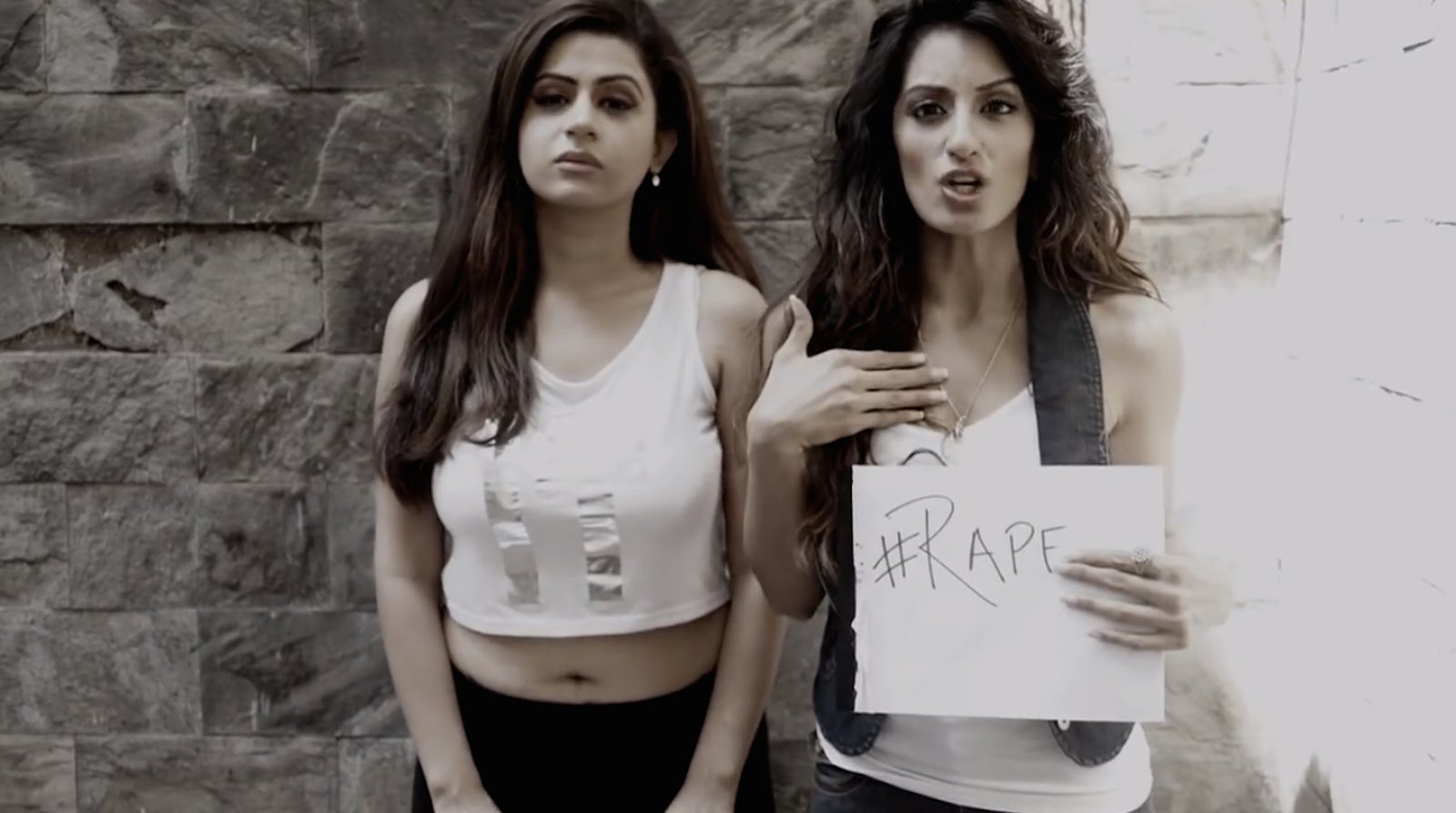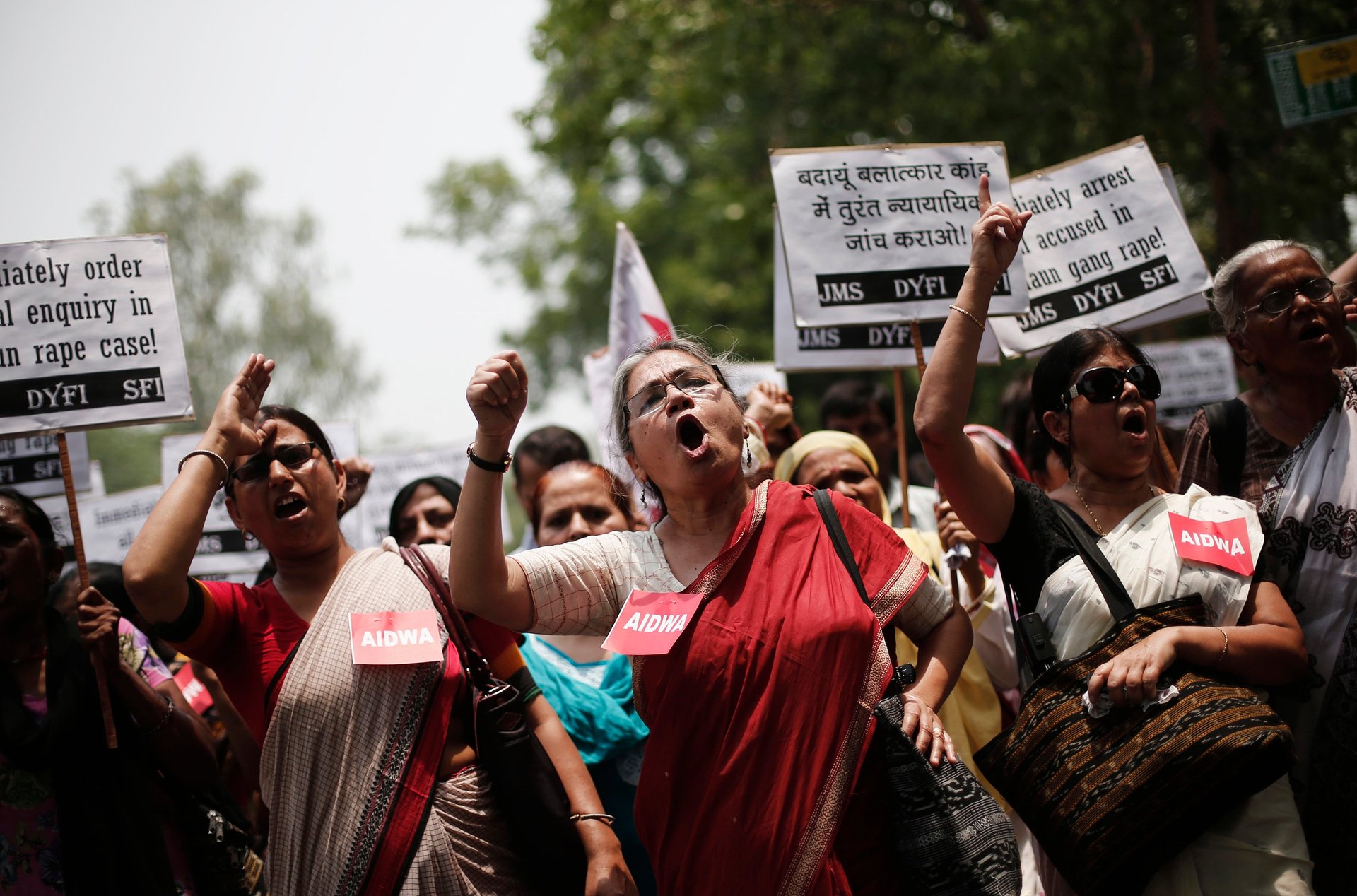Watch: A female rap duo is fighting India’s rape culture with rhyme
Two and a half years after the brutal rape and murder of a 23-year-old physiotherapy student in New Delhi shocked India and made international headlines, gendered violence still a huge problem in India.


Two and a half years after the brutal rape and murder of a 23-year-old physiotherapy student in New Delhi shocked India and made international headlines, gendered violence still a huge problem in India.
“We’re now known as the land of rapes,” says the TV host Pankhuri Awasthi, in a Youtube video performed with the artist Uppekha. “But did you ever wonder, how this took shape?”
The pair’s spoken-word style piece, “Rap Against Rape,” highlights a deep-rooted societal mindset that accepts and condones rape and mysogyny. The video serves as a powerful reminder that entrenched rape culture is everyone’s problem.
Calling themselves the BomBaebs, Mumbai-based rap duo has set out to change the conversation. At the very least, ”Rap Against Rape” is raising some serious awareness: the video has already been viewed close to 500,000 times since March 16:
Staring steadily into the camera, Awasthi and Uppekha switch back and forth between Hindi and English as they deliver a series of unflinching rhymes about the culture of toxic masculinity and corruption they say runs rampant through their society:
Stop that tweetAnd actually get on your feet
And help reform this mindset
That for years has been preset
That our women are nothing more than objects
To be controlled, shut-up and used for sex
No boy, learn some respect
And indeed, new research suggests that sexism and gendered biases are still being passed on to the younger generations. In a study released this month by the Bangalore-based nonprofit Children’s Movement for Civic Awareness (CMCA), close to 60% of boys surveyed said that sexual violence is at least partly the victim’s fault. Equally upsetting? More than 50% of girls felt the same way.

In an interview with the BBC, Awasthi and Uppekha acknowledged that these kinds of regressive attitudes won’t change overnight—or as a result of a three-minute music video. But they maintain that highlighting these attitudes is a vital piece of the process.
Drawing power from personal experience—including the common experience of groping on public transportation—the rap lyrics highlight the daily frustrations of life in a culture that does not always prioritize a woman’s ownership over her own body:
No we wont stay at home or be scared of the nightWe’ll continue to work because its our right
I’m short, I’m fat, I’m tall, I’m skinny
I’ll wear what I want—even if its mini
It’s only a dress
Don’t for a second think it’s a yes